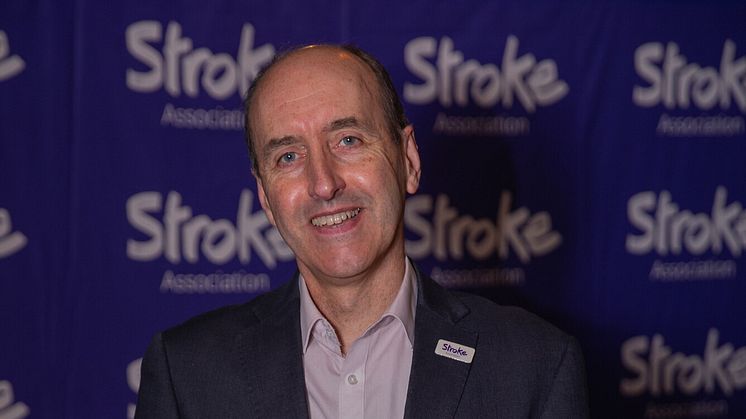
Press release -
Proposed Long Term Conditions Framework risks hard-won progress in stroke policy
Stroke is Scotland’s fourth biggest killer and the leading cause of complex adult disability, with around 10,000 Scottish residents having a stroke annually.
The Stroke Association acknowledges there may be benefits to a more coordinated approach in preventing chronic conditions and in supported self-management, as the Scottish Government’s proposed Long Term Conditions Framework sets out. But this must not be at the expense of the well-evidenced benefits of delivering time-critical stroke treatments nationwide and expanding stroke rehabilitation to address the condition’s specific traits and needs.
John Watson, Associate Director for the Stroke Association in Scotland, said:
“Our interest is in the likely impact of this move on the thousands of people in Scotland who have a stroke every year and the consequences for individuals, their loved ones and wider society.
“We agree there are opportunities for a more joined up approach across conditions, for example in promoting healthy lifestyles or managing conditions such as high blood pressure, which is the cause of around half of all strokes.
“However, stroke is a medical emergency with clear differences from other chronic conditions, including the need for time-critical treatment to save lives and prevent disability. As stroke can leave people unable to move, see, speak or even swallow, stroke rehabilitation also needs a bespoke approach.
“Stroke policy has been a focus for the Scottish Government in recent years. Any combined framework must take care not to undermine this commendable and unfinished progress.”
Key points from the Stroke Association’s response to LTC Framework consultation
- Stroke needs to be more of a political priority in Scotland, not less. The Long Term Conditions Framework must not dilute or deprioritise existing commitments.
- Stroke must be appropriately resourced, retain its own budget and status, and existing commitments built upon.
- Scottish Government must retain all current civil service stroke policy support functionality including a dedicated stroke policy lead, dedicated budget to a level commensurate with stroke improvement needs, a stroke improvement team, the Specialty Adviser to the CMO and a National Advisory Committee.
- The substantive elements contained within the Stroke Improvement Plan 2023 must remain in place, and progress by health boards towards delivery against the Plan’s commitments must continue to be supported, encouraged and vigorously pursued by Scottish Government.
- Stroke-specific rehabilitation must remain a part of stroke policy and not become absorbed into multi-condition rehabilitation programmes.
- Stroke is a medical emergency. It differs from other chronic conditions due to its time-sensitive treatments, as well as particular implications for a stroke survivor’s physical and mental health. Its impact on the lives of people in Scotland warrants stroke-specific policy and resource.
- Full submission here
Topics
Categories
Regions
References
1. Vital Events Reference Tables 2023 - National Records of Scotland (NRS)
2. https://www.strokejournal.org/article/S1052-3057(04)00070-9/abstract
3. Scottish stroke improvement programme annual report 2024 - Scottish stroke improvement programme - Publications - Public Health Scotland
4. Health: Long Term Conditions Framework - Scottish Government consultations - Citizen Space
About the Stroke Association
· Around 10,000 people have a stroke in Scotland every year.
· Mums, dads, grandparents, young people, even children – anyone can have a stroke, and its impact is traumatic.
· Brain damage, caused by a stroke, can leave survivors unable to move, see, speak or even swallow.
· The Stroke Association is Scotland’s leading stroke-specific charity providing life-long support to stroke survivors and their families. We raise awareness of stroke, fund vital scientific research, and campaign to bring the best care and support for everyone affected by stroke.
· Anyone affected by stroke can visit stroke.org.uk or call our dedicated Stroke Support Helpline on 0303 3033 100 for information, guidance or a chat when times are tough.
· You can follow us on X or Facebook











